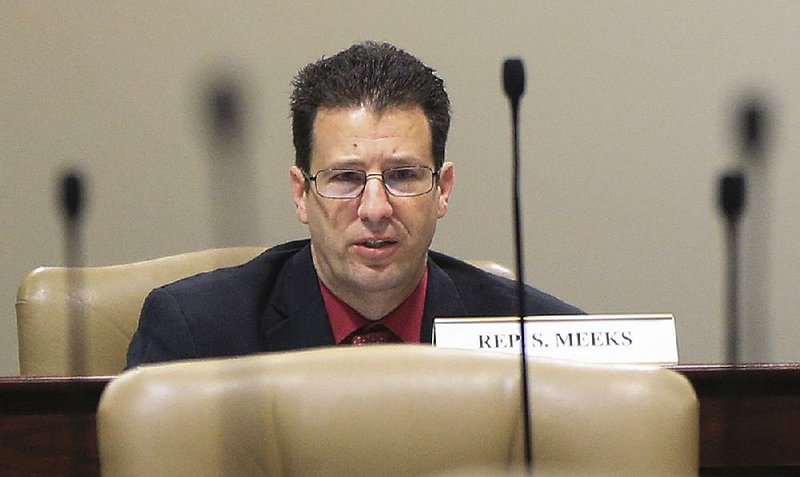A bill that would bar Arkansas employers from requiring employees to be implanted with microchips cleared a legislative committee Tuesday.
Rep. Stephen Meeks said he decided to sponsor House Bill 1177 after reading an article about Three Square Market, a Wisconsin company that gives an employee the option of having a chip implanted in one of his hands that the employee can use to gain access to the company's headquarters and pay for food in the cafeteria.
According to news reports, the chips are about the size of a grain of rice and are implanted between the thumb and index finger using a syringe.
Meeks, R-Greenbrier, said the bill would make Arkansas the first state to establish regulations governing employers' use of the devices on their employees. He said he doesn't know of a company in Arkansas with plans to use the technology but that he wants to have rules in place when it arrives.
"Do we wait until after the snake bites and then try to come up with solutions for it?" Meeks asked. "I believe there's great wisdom in doing it beforehand."
Rep. Mary Bentley, R-Perryville, said her constituents are in an "uproar" over the bill.
[RELATED: Complete Democrat-Gazette coverage of the Arkansas Legislature]
"I don't see why we need to get into this at all," she said. "The free market's already handling it."
The bill would prohibit employers from requiring an implant as a condition of employment and allow it only if the employee gives written consent.
Employers would have to disclose to the employee what information is stored in the chip and how the data will be used.
Employers would be required to remove the chip within 30 days at the request of the employee and would be responsible for all costs associated with implanting and removing the chip.
Employers would also be responsible for any health problems caused by the procedure or the device.
Upon leaving their jobs, employees would have the option of keeping the chip in place but would then become responsible for any costs associated with it.
Paul Calvert of Greenbrier, who is not a legislator, said he would support applying the restriction to corporate employers but not business owners who are personally liable for their business's actions.
"I think they should be allowed to make any kind of dumb rule they want to and impose it on their employees as a condition of their employment," Calvert said.
The House Public Health, Welfare and Labor Committee recommended passage of the bill in a voice vote, with at least one member audibly dissenting.
It next goes to the full House for a vote.
Metro on 01/23/2019
